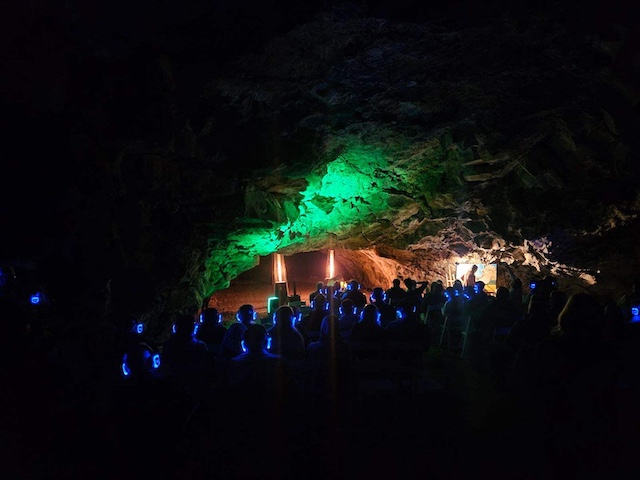Chasing wildlife, with course etiquette
Published 5:00 am Tuesday, September 3, 2013
For many golf course superintendents, working dogs are as essential as the lawn mowers and the sprinklers. Patrolling the course, working dogs greet players and chase away wildlife that can damage the turf. Some even have duties beyond the course, like visiting hospitals to comfort patients.
The dogs listen to plenty of grass-growing and fungus-fighting complaints by their owners. But the superintendents know that the animals will remain eager to work.
“I can depend on him to come to work every day,” Alton Sheffield said of his 6-year-old border collie, Chase, who rides with him to North Ridge Country Club in Raleigh, N.C., at 6 each morning.
Chase, who weighs 48 pounds and can run circles around Sheffield’s cart, goes to the course to perform a specific task.
He makes sure Canada geese do not become comfortable and nest. When the geese swoop in, Chase, like many other golf course dogs, helps them find the sky.
“Geese are considered a nuisance for golf course managers because of several factors, ranging from the more minor noise element to more serious issues, such as destruction of turf and the depositing of fecal matter,” said Greg Lyman, the director of environmental programs for the Golf Course Superintendents Association of America.
The geese can eat turf in sensitive areas, like the greens and the teeing grounds, Lyman said.
He added that the birds’ fecal deposits can cause health concerns for golfers. A well-fed, healthy adult Canada goose can produce up to 1 1⁄2 pounds of fecal matter per day, according to the Virginia Cooperative Extension website. Multiply that amount by 50 geese, and it is easy to understand why golf course superintendents put their dogs to work.
The dogs can run 5 miles a day — more, if they are allowed — on their giant playgrounds.
But they do not chase geese with reckless abandon. The goal is to harass the waterfowl and prevent them from nesting, not to harm or kill the birds, which are protected by state and federal laws.
Sheffield, the superintendent at North Ridge, sent Chase to “goose school” for three months as a puppy to work with trainer Brian Peters of Raleigh. Peters, also a golf course superintendent, had Chase shadow his adult Australian cattle dog to learn how to behave.
“I wanted Chase to learn golf course etiquette,” said Sheffield, who rewards Chase with two strips of bacon at the snack bar each morning.
“He learned not to run into bunkers, onto greens, across streets, and not to bark on the golf course,” Sheffield added. “He also learned the difference between geese and ducks and knows to leave the ducks alone.”
Julia, a 10-year-old pit bull, has patrolled Capital Hills at Albany, N.Y., with superintendent Scott Gallup since she was a year and a half old. She makes sure geese do not stay when they show up once a year, but her bigger job is to keep deer and woodchucks off the greens at the municipal course.
While another dog, Hogan, lounges in the Capital Hills pro shop and greets visitors, Julia, a lean, 75-pound, muscular pit bull, follows Gallup on the hilly 5-mile loop around the course several times a day.
“I’d wear out two sets of tires on my cart each year, and she followed me every step of the way,” Gallup said. “In her prime, she ran between 100 and 130 miles a week, and she acted like it was punishment if I made her get in the cart.”
These days, Julia accepts more rides. Gallup calls her a gentle pit bull ambassador, although he is still trying to get her to “lighten up,” he said, whenever United Parcel Service visits the maintenance shop.
Less intimidating, but no less diligent in her work, is Pinki, a 4 1⁄2-pound Chihuahua and Yorkshire terrier mix, who works alongside the superintendent Damon Di Giorgio at Fieldstone Golf Club in Greenville, Del.
Pinki, 6, belonged to Di Giorgio’s girlfriend when he worked at a course in the Dominican Republic. When they broke up and he left the Caribbean, Di Giorgio kept Pinki, who understands commands only in Spanish.
“I figured I’d get a Lab or a retriever, but I have a dog named Pinki,” Di Giorgio said, laughing.
He added, “She does a great job of chasing off the geese, even though they are bigger than she is.”
Pinki was once held by boxer Oscar De La Hoya when he still lived in the Caribbean. At Fieldstone, a private club where chemical and pharmaceutical executives play, Pinki has met Vice President Joe Biden.
But Pinki is ready to work when she and Di Giorgio arrive at the course each day about 6 a.m. She runs as many as 3 miles beside her owner’s cart.
Pinki runs after flocks of geese but carefully avoids the water. She also chases deer and foxes.
Once, while Pinki was chasing deer, Di Giorgio was called to solve a problem and forgot about his dog. He received a call that Pinki was on the eighth hole, so he drove his cart to find her.
“When I got there, there were four men taking turns holding her while they putted out,” he said. “She’s a real icebreaker when it comes to member relations.”
Pinki also visits people in hospice care and patients with Alzheimer’s disease in hospitals in Wilmington.
“Sometimes, she makes me feel like I have a higher purpose than just growing grass,” Di Giorgio said.
Ozzie, a 12-pound Jack Russell terrier mix, solved the Canada goose problem at Lawrence Country Club in Kansas. The course superintendent, Bill Irving, credited his “course mascot” with saving the greens.
“You’re always graded on the quality of your greens, and I’ve seen geese take chunks out of our putting greens,” Irving said. “But with Ozzie, the geese give up and go elsewhere.”
Named for the former Nebraska football coach Tom Osborne, Ozzie has chased coyotes and foxes, too. He runs up to 5 miles a day over the course’s 120 acres.
“As far as he is concerned, those are his acres to defend and protect,” Irving said, adding, “Sometimes he has this look like, ‘God, I have the best job in the world.’ ”
Because of Bailey, a 50-pound Australian shepherd, geese do not exist on the Stadium Course at TPC Sawgrass in Ponte Vedra, Fla. The course, which hosts the PGA Tour’s Players Championship, has been goose-free for two years since Bailey’s arrival.
Like her other canine colleagues in the golf business, Bailey arrives early in the morning. She spends up to 10 hours a day helping the assistant superintendent, Mike Cooper, nurture one of Florida’s championship courses.
Cooper trained Bailey, now 9, to be courteous on the course, where touring professionals often practice, and to be mindful of the state’s most infamous reptile.
“She hardly ever runs into the water after geese,” Cooper said, “which is important because of the gators.”
Her ability to charm touring pros might be one of her biggest assets, Cooper added.
“If I have her in the cart and have to tell pros that I need for them to leave the green so I can mow, it makes it a lot easier to interrupt them,” he said. “She helps in a lot of ways.”






